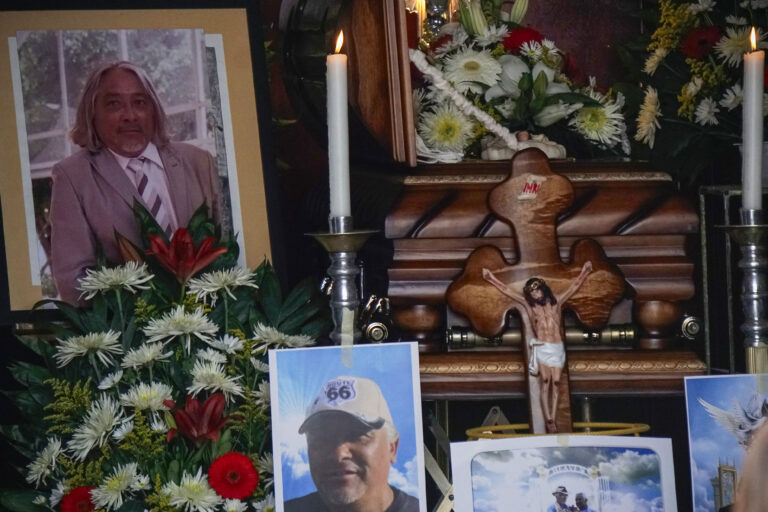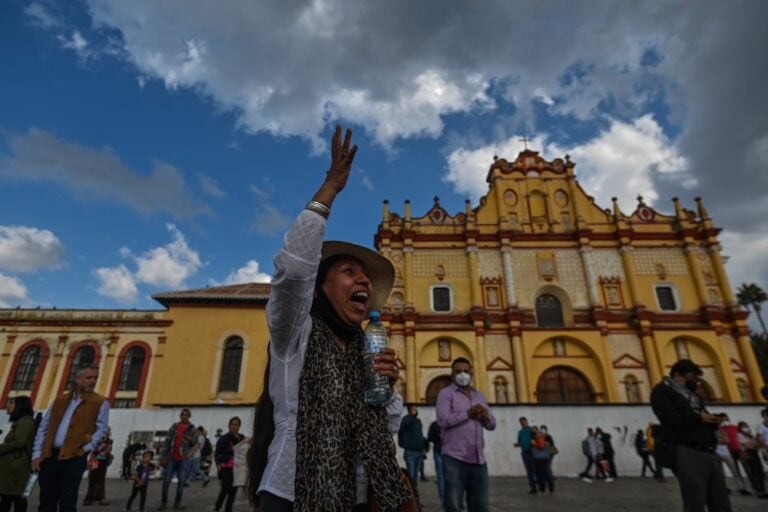(AMARC/IFEX) – AMARC opposes with alarm the aggression against journalists and media outlets in Oaxaca state by armed commandos seeking to silence the journalists. The main responsibility for these acts lies with both the federal and state governments, given that the social conflict between the different social actors in the region is the result of […]
(AMARC/IFEX) – AMARC opposes with alarm the aggression against journalists and media outlets in Oaxaca state by armed commandos seeking to silence the journalists. The main responsibility for these acts lies with both the federal and state governments, given that the social conflict between the different social actors in the region is the result of the authorities’ ineffectiveness in establishing channels for dialogue and negotiation.
The current crisis in Oaxaca, which has become almost ungovernable, reflects both the polarisation of the actors as well as the federal and the Oaxacan governments’ lack of the political acumen needed to solve this conflict. AMARC notes that the Oaxacan government has carried out various coercive actions over the last year to restrict press freedom, as in the case of “Noticias, Voz e Imagen” newspaper (see IFEX alerts of 10 August 2006, 16 and 1 November, 30 September, 20 and 1 July and 27 June 2005).
This polarisation has led to, first, the Popular Assembly of the People of Oaxaca (Asamblea Popular del Pueblo de Oaxaca, APPO) taking over 12 radio stations and the state-owned television station in response to the obstinate refusal of the various media outlets to allow this movement’s voice to be heard by their audiences.
Although the above-mentioned actions are unfortunate and regrettable, inasmuch as they affect other people’s rights, one cannot dodge the fact that this is a moment of social polarization and frustration which has exhausted the tolerance of the social groups that have been marginalized and unable to exercise their right to freedom of expression; these actions are an undesirable response to the Mexican government’s policy, which prevents citizens from owning media outlets and having access to more diverse sources of information.
The context, one of aggression against the media outlets and journalists in Mexico, has been criticized for many years; the country is one of the countries where the largest number of journalists have been murdered, made to disappear or persecuted in the courts for actions directly related to their work, exceeding even the number in Colombia. During this presidential administration, Mexican society has witnessed aggression against various media outlets which have been closed under suspect circumstances, as occurred with Canal 40, or with open repression, as was the case with “Noticias, Voz e Imágen” newspaper.
As well, the absence of a government communications policy and legislation guaranteeing the diversity in media outlets that might allow social debate has produced a media model that is in crisis, one which violates the majority of the population’s right to information, and tends to generate only more confrontation and inequality, as seen in the case of the television law. The government has not assumed its responsibilities in this conflict.
Additionally, in response to the arbitrary and illegal acts that municipal authorities belonging to the Institutional Revolutionary Party (Partido Revolucionario Institutional, PRI) have committed, and given the lack of state institutions capable of responding to their complaints, communities have been taking over municipal governments, deposing officials in power. This is the case in San Antonino, where Calenda La Voz del Valle community radio station is located. Given the possible intervention of state and federal police there, AMARC reiterates the urgent call made by innumerable organizations for the National Human Rights Commission (Comisión Nacional de Derechos Humanos, CNDH) to send inspectors to Oaxaca and prevent imminent human rights violations.
The situation has led to a spiral of violence in which all the social actors are now in confrontation with each other (see IFEX alerts of 24, 23, 22 and 10 August, 25 and 24 July, and 19 June 2006). Therefore, AMARC-Latin America and the Caribbean, and its representative in Mexico, urgently request that the federal authorities protect journalists carrying out their work in Oaxaca, and that they do so without violating human rights. AMARC also believes that a government policy guaranteeing that all social sectors can exercise their right to freedom of expression, and providing opportunities for social debate, cannot be postponed any longer. If it is, only greater confrontation and inequity will be generated, as is now being experienced in such a dramatic fashion in Oaxaca.


